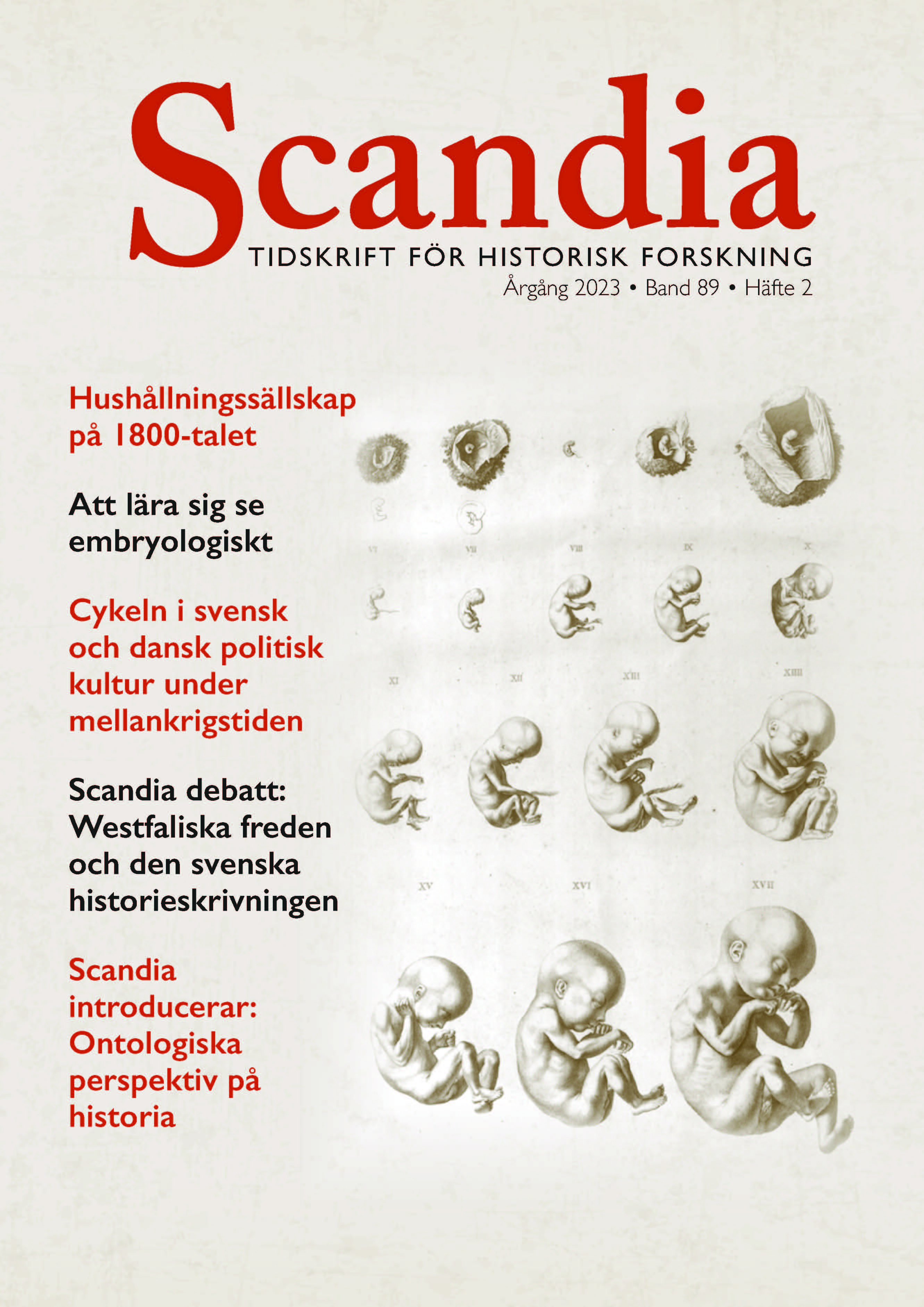Membership Organization Between Majesty and Citizens? Representation and Power Through Agricultural Societies During the Early 19th-Century Societal Transformation
DOI:
https://doi.org/10.47868/scandia.v89i2.25792Keywords:
agricultural history, rural organizations, governance, associational organizations, 19th-century SwedenAbstract
This article investigates the functioning of organizations in the grey zone between the private and public sectors during a period of rapid societal change. The focus is on the first half of the nineteenth century, a formative period in Swedish history when an old order was challenged by demands regarding decentralization and democratization. The establishment of new organizations may be linked to these demands, and this article investigates hushållningssällskapen as a characteristic example of these. The paramount aim of hushållningssällskapen was to promote agriculture, while they actually covered many aspects of social and economic life. Hushållningssällskapen constituted, and still constitute, a nationwide organization with strong regional and local roots. They were linked to the government but relied on membership and election procedures. Thus, a new arena emerged for interactions between actors interested in rural spaces and activities.
This article presents a new theoretical and empirical approach with the aim of filling a knowledge gap regarding the importance and functioning of hushållningssällskapen in the process of societal change. Drawing on research concerning rural governance, hushållningssällskapen may be considered an example of a governance arrangement. The membership composition is investigated in relation to the activities of the organization with regard to geographical differences and changes over time. Two regional branches of the organization are compared: Malmöhus county and Västerbotten county.
The results show that the composition of members and activities varied geographically and changed over time in tandem with regional economic characteristics and societal transformation. The representation of old elites such as the nobility and clergy decreased in favour of the relative elites of a new societal order, namely bureaucrats, professionals, and wealthy farmers. Furthermore, the vitality of hushållningssällskapen appears to have benefitted from strong ties to the county administrative board, especially when hushållningssällskapen provided opportunities for having an impact on the implementation of state policies. In summary, hushållningssällskapen could play an important role as a governance arrangement. They bridged a gap during a period when a modern bureaucracy and democratic institutions did not exist or were in the making.





